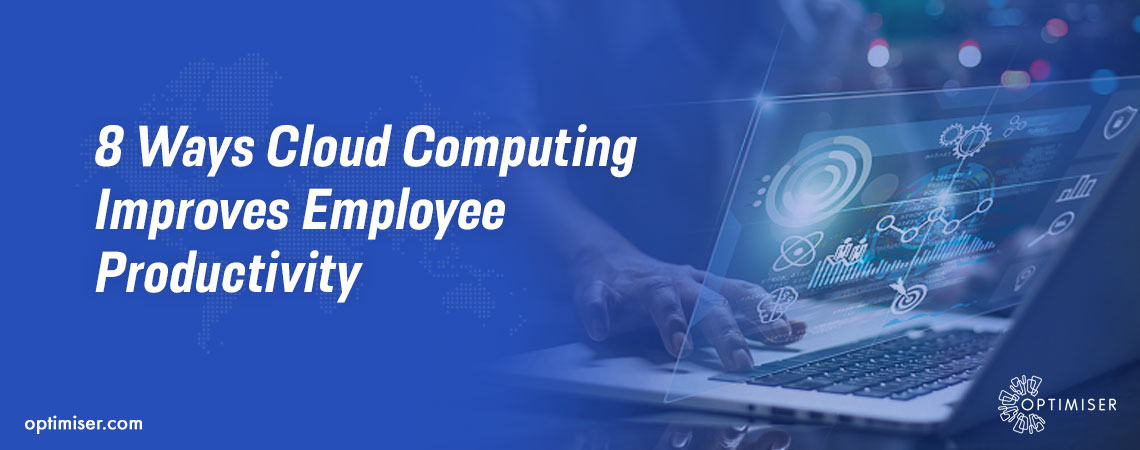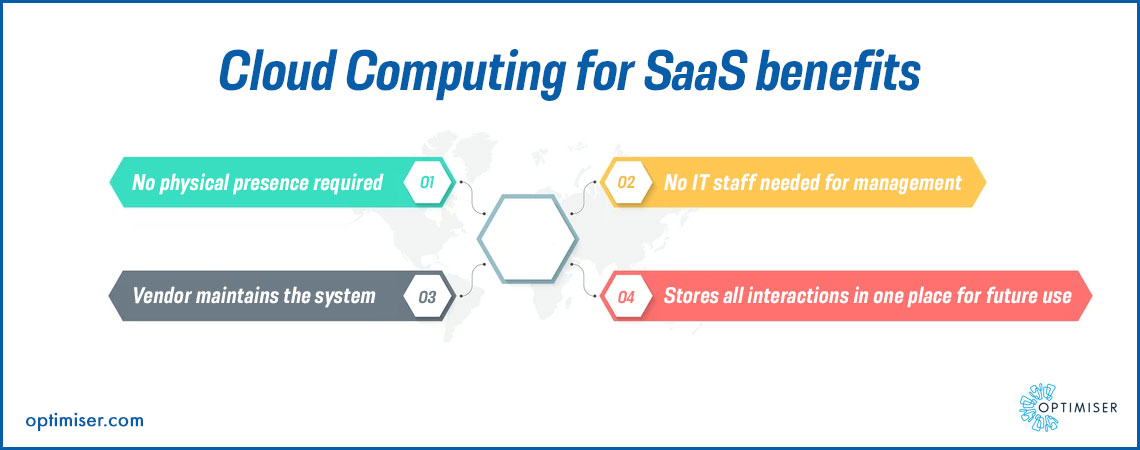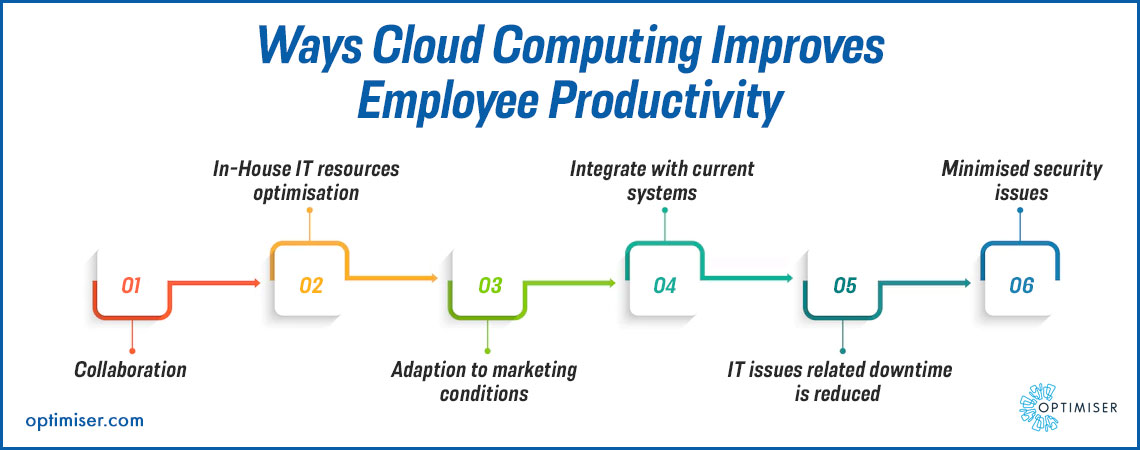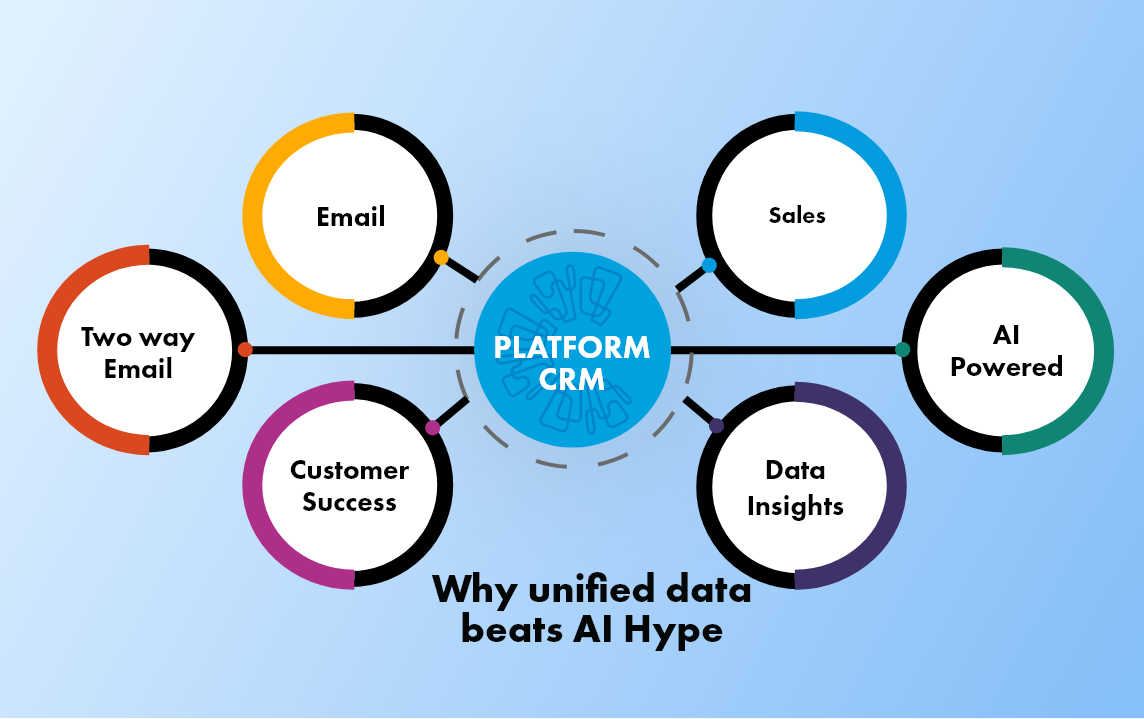
Cloud Computing
8 Ways Cloud Computing Improves Employee Productivity
By 2025, more than 100 zettabytes of data or a trillion gigabytes of data will be stored in the cloud. Companies have since discovered that could computing can make employees extremely productive.
Cloud computing for Software as a Service (SaaS)
Software as a Service application is extremely popular amongst people. About 77 per cent of organisations around the world used SaaS. These can be accessed from anywhere around the world without requiring physical access in the office. It has helped the companies overcome the problem that came up during the pandemic of avoiding data silos in an organisation. These applications do not require an IT staff and the major bonus is that the Saas vendor manages the technical information associated with the platform.

Ways Cloud Computing Improves Employee Productivity
In the pandemic, it was observed that the productivity rates in many companies had improved rather than going down!
From cutting the time spent in commuting, streamlining communication and boosting collaboration, cloud computing has had some
interesting impacts.
Here are some ways in which cloud computing can improve employee productivity
1. Collaboration
Cloud computing has improved employee collaboration. They can communicate in real-time with managers, stakeholders, clients and team members regardless of their location. Each party will have access to all the data that is stored on the platform and ensure that they are up-to-date with the latest development in the projects. As per a study done by Cisco, collaboration in companies by using technologies has improved by as much as 400 per cent!
Optimiser platform has its own drive where you can upload and download files as well as share them with others. With a quick view calendar, you can view when your meeting can be scheduled so that they are no clashes amongst them.
2. Bring your own device
The Bring your own device trend has been gaining traction. Bring your own device or BYOD allows the employees to rely on personal smartphones to access mobile business apps and other services.
They can even download chat tools on their phones and use them while travelling. It has made employees more responsive and productive. Sales teams that are on the road do not have to open their laptops to get data on a customer. They can see it on their phones and evolve their approach for every customer.
3. In-House IT resources optimisation
SaaS applications ensure that the IT teams are not tied up in maintaining the software being used in the company. It frees up the time that can be spent on ensuring more important and strategic initiatives are looked after. Depending upon the kind of platform, they can either do some of the tasks that require attention or outsource it.
4. Adaption to marketing conditions
Cloud computing provides companies with a powerful suite of tools that can be used to scale up and down as the trends in the market change. This kind of flexibility can be a huge advantage to an organisation looking to gain a competitive edge in an unstable market. With the right tool, your employees can still be effective and up to date. They will be able to do their jobs effectively and productively. Even though productivity and efficiency are used interchangeably, they are different terms. However, they are quite connected. When you are productively working with a goal in mind, it is possible for you to be efficient. Therefore, cloud computing can impact efficiency as well.

5. Integrate with current systems
The biggest benefit of cloud computing platforms has been that they integrate seamlessly with other software applications. Employees can switch between platforms, update data or even migrate it without losing anything. Doing it manually is time-consuming and not to miss, it can be an error-prone process. It is not a connect it and forget work, it will require the attention of personnel while the data is being added, but it is far more seamless and avoids duplication with a cloud computing platform.
6. Outsourcing
Talent from around the world can be hired by companies with the help of cloud computing. Since it makes it possible to work from home and gives employees the flexibility to work from any device, your organisation can maximise its potential. You can even outsource employees from different locations and increase profitability.
7. Downtime connected to IT issues
Cloud computing providers have their own team that is dedicated to tackling any IT related issues on the applications. They have the optimal amount of resources to ensure that the issues can be resolved immediately and you can be back to working in no time. It will not have any long-term impacts on employee productivity.
8. Minimised security issues
Security breaches like ransomware attacks can lead to costly downtime and compromised data. Optimiser comes with a two-step authentication system to ensure that the customer information remains safe. Additionally, you can grant access to the information an employee needs to get their work done and nothing more. This can be done on the basis of organisational hierarchy and you can avoid any unnecessary disruptions.
Summary
Cloud computing comes with a whole host of benefits. By 2020, the total market of cloud computing was worth $371.4 billion. And with its existing compound annual growth rate or CAGR of 17.5 per cent, this market will have a value of $832.1 billion by 2025.

30 days free trial. No credit card required
 One powerful platform
One powerful platform
 Simple to use
Simple to use
 Comprehensive
Comprehensive



